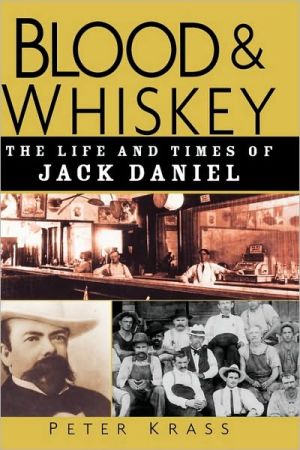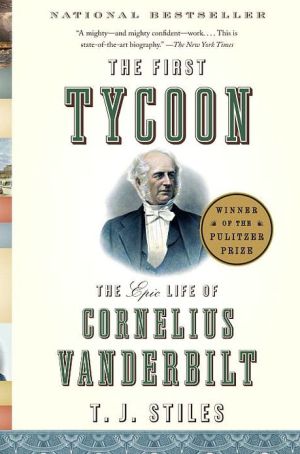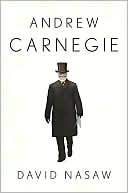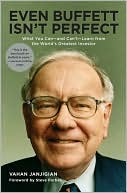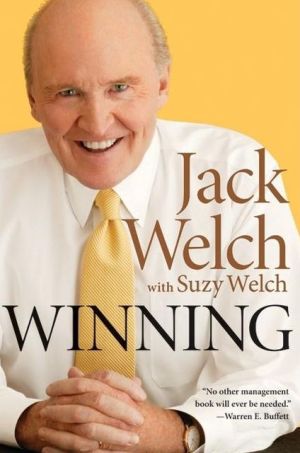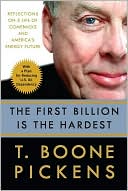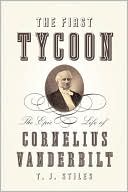Jack Daniel
The Real Jack Daniel, Straight Up\ You know the brand, now meet the man. He was dapper and diminutive, with the soft, amiable drawl of the quintessential Southern gentleman. Upon first meeting the mature and successful Jack Daniel, few would have guessed that this elegant, mild-mannered aristocrat had clawed his way up from stark poverty, toiled for countless hours, risked his life many times, and overcome obstacles that crushed seemingly tougher men to achieve his success.\ Blood...
Search in google:
The legends are colorful and many. Jack Daniel, it is said, ran away to escape a broken home; was a teenage moonshiner during the Civil War; and hauled black-market whiskey, hidden under loads of meat, to the wild river port of Huntsville, Alabama, sneaking into town after midnight to avoid the sheriff and his deputies. Until now, however, no one has explained how this orphaned "boy distiller" went on to establish a legitimate business and create one of the most powerful and widely recognized brands in the world.In Blood & Whiskey, renowned biographer and business author Peter Krass digs deep into the rich history of Lynchburg, Tennessee, to discover the origins and exploits of its most famous—some say notorious—son. What he finds is an ambitious and charismatic entrepreneur who combined a love of his craft and a natural talent for marketing with far-reaching vision and a fierce determination to succeed against all odds. From Jack’s youthful days learning the distiller’s art from a former slave to his inspired design for the distinctive, square Jack Daniel’s bottle, this lively biography separates fact from myth as it reveals a man whose real life was as intriguing as the tall tales told about him. It demonstrates convincingly that Jack picked the worst possible time to start his business, with the entire nation in the grip of economic depression, the federal government depending on distillers for half of its revenues, and a growing temperance movement clamoring for universal prohibition. Writing with a deep understanding of what it takes to build and expand a successful business, Krass explores Jack’s devotion to quality, ready eye for opportunity, and willingness to take risks. These traits enabled Jack Daniel to become the most successful distiller in Tennessee, even as many of his competitors succumbed to the hardships of a hostile business environment. The author also uncovers the long-lost marketing secret behind the naming of Jack Daniel’s flagship brand, Old No. 7, and the strategy that enabled the Jack Daniel Distillery to compete successfully against such venerable Kentucky brands as Jim Beam and Maker’s Mark. Packed with memorable accounts of run-ins with fervent teetotalers and corrupt tax collectors, as well as heartbreaking tales of struggle and privation in post—Civil War Tennessee, Blood & Whiskey tells a classic American success story with a distinctly Southern accent. Publishers Weekly The author traces the Daniel family lineage from Scotland and Ireland to rural Tennessee, and Jasper "Jack" Newton Daniel's rise from hardscrabble youth to a dandy gent with a love of horses, fine clothes and women, a colleague of J.P. Morgan's and one of the most famous spirits producers in the world. Orphaned at 15, Jack discovered a whiskey still on the property of his longtime neighbor and new guardian, Dan Call, and his interest in distilling booze was born. Krass (Carnegie) details the early business partnership between Call and Daniel and their eventual split, as Call forces himself to choose between preaching and making whiskey. "One Call [descendant] wished he'd given up preaching instead because the Jack Daniel Distillery was eventually worth tens of millions of dollars," Krass writes. While Krass's research is ample, the book often gets bogged down in historical minutiae, and at times the reader wishes for a more charismatic star of the show than the somewhat dour Daniel. But witnessing the maturation of his namesake company not to mention the maturation of the U.S. as it confronts slavery, the Civil War and the temperance movement is engrossing. Fans of the whiskey will be happy to hear the alleged real story behind the Old No. 7 that adorns each bottle, and anyone can appreciate the classic American characters sprinkled throughout the text, including the richly monikered Eph Grizzard, Beauregard Beam and Lemuel Motlow. Agent, Ed Knappman. (May) Copyright 2004 Reed Business Information.
Blood and Whiskey\ The Life and Times of Jack Daniel \ \ By Peter Krass \ John Wiley & Sons\ ISBN: 0-471-27392-9 \ \ \ Chapter One\ THE CURSED CHILD \ * * *\ Freedom and whisky gang thegither. -Robert Burns, Scottish poet\ Jasper "Jack" Newton Daniel was the cursed child. The youngest and by far the smallest of ten children born to Calaway and Lucinda Daniel, he was the neglected runt of the family. His mother had died shortly after he was born in 1849-most likely, from complications in childbirth. His stepmother had never taken to him. And now his father was dying. It was the winter of 1863-1864. The Civil War raged on. The family's once-productive Middle Tennessee farm lay raped and wasting; the avaricious Union invaders had long pillaged their livestock, their produce, their grain, and their wood; Confederate soldiers on the run had begged for any remaining scraps; and bandits continued to raid indiscriminately. Perhaps Jack's four older brothers could have protected the family land-perhaps-but Robert and James had removed themselves to Texas, while Wiley and Lemuel had enlisted in the Confederate army. There was nothing young Jack could do as his father lay stricken with pneumonia in their drafty, dank, wood-frame house. Soon, the fourteen-year-old boy would be left to his own means, forced to become resilient and self-reliant. Fate was apparently against him.\ Calaway was a broken man; the Civil War and the subsequent plundering of his farmhad shattered him. It was a humiliating end for a man whose brazen ancestors had fought in both the Revolutionary War and the War of 1812. The Daniel blood, a mix of Scotch-Irish and Scottish, was the right kind of "blude" for soldiers, for pioneers on the American frontier, and for distilling robust whiskey. The family's most prominent ancestor and hero was Jack Daniel's grandfather, Joseph "Job" Daniel, an adventurous immigrant. Through the bloodline, Job bequeathed to his grandson a fierce desire for independence and a fighting spirit.\ Joseph's nickname said it all. In the book of Job from the Old Testament of the Bible, God severely tested Job's faith by allowing Satan to inflict indignities and pain upon him. His oxen, asses, and camels were stolen; his servants killed; and a windstorm struck down his son's house, killing all of his children. As a final affront, Satan "afflicted Job with loathsome sores from the sole of his foot to the crown of his head." Despite these rather brutal calamities, Job eschewed Satan and never lost his faith in God. Eventually, he was rewarded. Our Job Daniel also suffered, only under a would-be god-the king of England.\ Job's plight began in Northern Ireland, where he was a member of the oppressed Scotch-Irish enclave. This ethnic recipe had been concocted in the early 1600s, when, after ruthlessly suppressing a rebellion in Northern Ireland, the British crown had granted land there to Scottish lairds, on the condition that they recruit thousands of their minions to settle the region. Promised more freedom and liberal leases on land, they did so. King James I hoped these Scottish emigrants, or royal colonists, would prove relatively domesticated and would rub off on their wild Irish peers. Thus was born the Scotch-Irish, an opportunity-seeking and freedom-loving people. Among them were the ancestors of Job.\ More poignant to the Jack Daniel story, in the ensuing years, the Scottish settlers, who were practiced in the art of distilling single malt scotch, shared their respective trade secrets with the native Irish whiskey distillers-secrets that would eventually make their way to American shores. Both traditions use barley, one of the few crops easily grown in the harsh Irish and Scottish soils, but from there the respective recipes take different courses. The Scots relish the earthy peat flavor created when they add decomposing vegetable matter to their fires while toasting their barley during the malting process, whereas the Irish prefer their whiskey unpeated. Debate over the respective recipes, however, played second fiddle to arguments over which land started distilling whiskey first. As many a Scot says, "Aye, the Irish may've invented the stuff. But, by Jings, man, we were the ones who perfected it." What's known for certain is that by the 1490s, single malt was being produced by one Friar John Cor for King James IV of Scotland, who, like any good gluttonous king, had a royal taste for the intoxicating spirit.\ PEACE IN NORTHERN IRELAND didn't last long. It began to disintegrate as early as the 1640s, when England and Scotland passed excise taxes on "all strong waters and aqua-vitae"-cultured terms for whiskey. So much for promised freedoms. The dogged excise man, who represented the despicable monarchy, became a hunted animal and met with increasing violence, as distillers refused to pay taxes on what they considered a basic necessity. Not until the 1700s would the tension climax, brought on by economic deprivations that created calamitous conditions. Expensive food, discriminatory trade policies on the part of the English, and the collapse of the linen industry in the early 1770s compounded the Scotch-Irish financial woes. Particularly galling to the Scottish settlers was "rack-renting." This devious practice was executed by the native landowners, who unjustifiably inflated rental costs to force the Scotch-Irish from their homes so that pure-blood Irish could reoccupy them. Between the 1750s and the 1770s, rent doubled. Another indignity: the native Catholics and members of the Church of England persecuted the settlers for being Presbyterian, the Protestant sect that dominated Scotland. The time was ripe to move on-namely, to the New World. Joseph "Job" Daniel was among the throng of Scotch-Irish immigrants who arrived in America just prior to the Revolutionary War.\ Several attractive options were open to Job, in deciding his destination. In particular, there was Pennsylvania, which had a tradition of religious tolerance dating back to the days of William Penn, a Quaker who founded the colony. A popular port of entry was Philadelphia, from which immigrants pushed west to Pennsylvania's Allegheny Mountains, some choosing to breach the mountains while others turned southward, racing each other down the Shenandoah Valley via the Great Wagon Road in search of fertile land. Immigrants migrating south also poured through the Cumberland Gap, a mountain pass close to where the borders of Virginia, Kentucky, and Tennessee converge. Here, the premier trailblazer Daniel Boone, clad in buckskin, created the Wilderness Road and founded Boonesville, Kentucky, in 1775, thus accelerating migration. The Scotch-Irish refused to be hemmed in as they scrambled for property and freedom. Their sentiment: "I hain't a goin' to rent. I'll own some land if hit's only a house-seat." Another popular destination was the Carolinas, which boasted acres of cheap, sometimes free, frontier land. Southern ports of entry included Charleston, South Carolina, and New Bern, North Carolina, the latter a major seaport strategically located at the confluence of the Neuse and Trent rivers.\ After weighing his options, Job Daniel booked passage to New Bern, where he would settle. The insidious passage from Northern Ireland to North Carolina was typically a long nine weeks, barring headwinds or no winds. Few ships had portholes for ventilation and light, and the crowded deck space was stuffy. Disease and pestilence, privateers and pirates, and shortages of food and water always threatened to make for a more brutal odyssey. Adult passengers were promised seven pounds of beef, seven pounds of bread, one pound of butter, and fourteen quarts of water weekly; however, the cost of food cut into the captain's profits, so you can be certain he didn't overstock. A high mortality rate was about the only thing the captain guaranteed.\ To ease the suffering, rum was sold on board. West Indies rum, plentiful and cheap, was the liquor of choice in the Americas; corn whiskey had yet to make its grand entrance. Rather than taking a liking to this cheap dark liquor, which was valuable for bartering and trading slaves, the Scotch-Irish came with a thirst for good whiskey, an essential ingredient for survival in a foreign land where, as far as they were concerned, the quality of water was suspect. Even though fresh water in America would be the least of their problems, still houses sprung up as quickly as log homes. As one pious Pennsylvania doctor observed of the settlers, "The quantity of rye destroyed and of whiskey drunk in these places is immense, and its effects upon their industry, health and morals are terrible." It was commonly acknowledged, "Where there's smoke, there's bound to be whiskey." Such was the case in New Bern, where the frontiersman-known as "the meaner sort"-would come into town and "there remain Drinking Rum, Punch, other Liquors for Eight or Ten Days successively," a physician wrote, "and after they have committed this Excess, will not drink any Spirituous Liquor, 'till such as they take the next Frolick, as they call it, which is generally in two or three Months."\ While New Bern was the North Carolina colony's capital from 1765 to 1778 and a major seaport, it was hardly a booming metropolis, with a mere 150 dwellings when Job arrived. It had been founded by a native of Switzerland but became a particularly popular destination for the Scotch-Irish after a former citizen of Ulster, Arthur Dobbs, became the governor of the North Carolina colony in 1754. In addition, the colony offered vast tracts of land without fencing where livestock could roam, and farmers could simply clear new land as the fertility of old land was exhausted. As for the social scene, New Bern offered the aforementioned binge drinking, as well as card playing, hunting, fishing, cockfighting, and hand-to-hand competitions.\ JOB DANIEL HAD HARDLY settled into his new life as a North Carolina farmer when the tyrannical British crown-a vicious dog clinging to America's coattails-again threatened his freedom. King George III's coffers were empty after the Seven Years War, which had engulfed Europe's colonial powers from 1756 to 1763, and the French and Indian War, which had been waged in North America from 1754 to 1763. As his greedy eye swept the landscape, he determined that the resource-rich American colonies were ripe for taxing. It began with the Sugar Act of 1764 and culminated with the British Tea Act of 1773, the latter resulting in the Boston Tea Party on December 16, 1773, during which Bostonians disguised as Indians threw tea into the harbor in protest. Because they had no voice in the royal court or in the British parliament, the colonists' rallying cry became "No taxation without representation." The next year militia groups-the Minutemen-formed. Tension built between the patriots and the loyalists. The Revolutionary War exploded on April 19, 1775, when the Minutemen engaged the British on the Lexington Green in Massachusetts.\ Devoutly loyal to their new homeland, the Scotch-Irish volunteered in droves to fight the despised redcoats. Job Daniel was in a quandary, however. He had just married Elizabeth "Bettie" Calaway, an adventurous lass who had emigrated from Scotland. Born circa 1757 to wealthy parents, Bettie forsook any dowry and, at age fifteen, eloped with the family's coachman. They then made the voyage to America, and she never spoke to her family again. Not long after, due to either death or disenchantment, she lost her first husband. Subsequently, Bettie swooned for Job. Bettie was the romantic in the Daniel family, a young woman with a zest for life, who lived to be an old woman with vinegar, surpassing the ninety-year mark. From Bettie, her grandson Jack would inherit a romantic streak; he would gain quite a reputation as a light-footed dancer and for having an eye for the ladies.\ Despite his recent marriage, Job volunteered to fight for the patriots when Captain Charles C. Pinckney of the 1st South Carolina Regiment was in New Bern, North Carolina, recruiting men for the cause. Pinckney was a Charleston native, who in 1775 served as a member of the first provincial congress and would become an aide to George Washington. In 1804 and again in 1808, he would run for president of the United States unsuccessfully. Yet his charisma could not be ignored. Job Daniel enlisted on November 4, 1775, and served at least until December 31, 1776, but possibly until May 16, 1777. In describing the rugged patriot soldiers drawn from the pioneer ranks, the historian Robert Leckie wrote, "No breed of frontiersmen existed in America hardier than these settlements of mostly Irish and Scots-Irish.... Fiercely independent, hunters, Indian fighters, deadly shots with those rifles to which they had given such names as 'Sweet Lips' or 'Hot Lead,' they could campaign for days on their horses with no other equipment than a blanket, a hunting knife and a bag of parched corn sweetened with molasses or honey."\ The journalist and social critic Irvin S. Cobb further perpetuated the Scotch-Irish reputation, observing that they were "self-reliant, high-tempered, high-headed, high-handed, high-talking folk who would be quick to take offense and quick with violent force to resent it; a big-boned, fair-skinned, individualistic breed, jealous of their rights, furious in their quarrels, deadly in their feuds, generous in their hospitalities.... a breed of lovers of women, lovers of oratory and disputation, lovers of horses and card-playing, lovers of dogs and guns-and whiskey." Jack Daniel would be imbued with these characteristics, too. The Scotch-Irish love of whiskey was a key card to be played in winning the war, and George Washington was all too cognizant of it. In 1777, he wrote to the Continental Congress, "Since our imports of spirits have become so precarious, my impracticable, on Account of the Enemy's Fleet which infests our Whole Coast, I would beg leave to suggest the propriety of erecting Public Distilleries in different States. The benefits arising from the moderate use of strong Liquor, have been experienced in All Armies, and are not to be disputed." Yes, a belly full of whiskey made for a courageous soldier.\ Job and his regiment were active in defending Charleston, South Carolina, in late June 1776, when a fleet of nine English ships took up positions there. The English pounded modest Fort Moultrie-strategically located in Charleston's harbor-with heavy cannon, but the men held. With unerring accuracy, the patriots raked the ships, eventually driving them off. Still, Charleston would fall to the English in 1780, and their forces would turn northward, wreaking havoc in the Carolinas. Years later, Bettie Daniel regaled her grandchildren with stories of the war. Her favorite was from when Job was home on furlough. A band of Tories hunting for patriot soldiers-that is, traitors-was approaching their property, so Bettie hid Job in the fire pit of a large oven in the yard.\ \ Continues...\ \ \ \ Excerpted from Blood and Whiskey by Peter Krass Excerpted by permission.\ All rights reserved. No part of this excerpt may be reproduced or reprinted without permission in writing from the publisher.\ Excerpts are provided by Dial-A-Book Inc. solely for the personal use of visitors to this web site. \ \
AcknowledgmentsxiIntroduction11The Cursed Child72Everything Gone but the Dirt253Legend of the Boy Distiller424The Nomad645Reunion and Challenge756A Rebellion against the Government927Identity Crisis1078Seizing the Legendary Hollow1209Taking On Nashville13610Big Man, Lonely Man15511Brand Magic16612Enemies17813Reborn19114The Final Battle204Epilogue: Lem's Trials215Afterword: The Making of a Legend227Notes235Bibliography257Index261
\ Publishers WeeklyThe author traces the Daniel family lineage from Scotland and Ireland to rural Tennessee, and Jasper "Jack" Newton Daniel's rise from hardscrabble youth to a dandy gent with a love of horses, fine clothes and women, a colleague of J.P. Morgan's and one of the most famous spirits producers in the world. Orphaned at 15, Jack discovered a whiskey still on the property of his longtime neighbor and new guardian, Dan Call, and his interest in distilling booze was born. Krass (Carnegie) details the early business partnership between Call and Daniel and their eventual split, as Call forces himself to choose between preaching and making whiskey. "One Call [descendant] wished he'd given up preaching instead because the Jack Daniel Distillery was eventually worth tens of millions of dollars," Krass writes. While Krass's research is ample, the book often gets bogged down in historical minutiae, and at times the reader wishes for a more charismatic star of the show than the somewhat dour Daniel. But witnessing the maturation of his namesake company not to mention the maturation of the U.S. as it confronts slavery, the Civil War and the temperance movement is engrossing. Fans of the whiskey will be happy to hear the alleged real story behind the Old No. 7 that adorns each bottle, and anyone can appreciate the classic American characters sprinkled throughout the text, including the richly monikered Eph Grizzard, Beauregard Beam and Lemuel Motlow. Agent, Ed Knappman. (May) Copyright 2004 Reed Business Information.\ \
